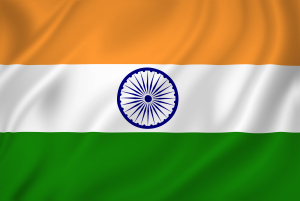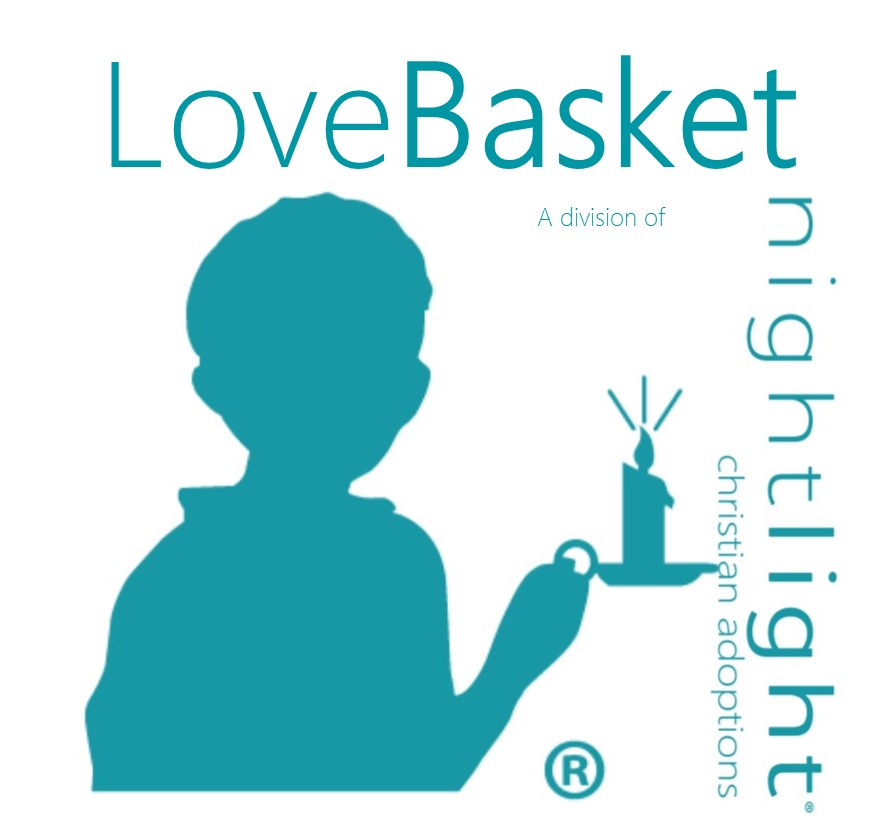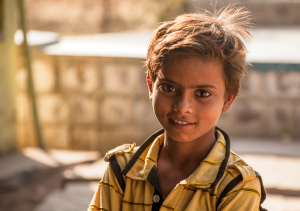
Introduction
The country of India, the largest region of the Indian Subcontinent, extends from the Himalayan Mountains in the north and south into the tropical reaches of the Indian Ocean. It’s the second most populous country in the world, and certainly one of the most interesting. From Indian foods to modes of transportation to colorful clothes, and animals competing with autos on the roadways, India offers a unique perspective on life and the world!
Love Basket has been placing babies, toddlers and older children from India since 1982. Through the years, this program has remained a consistent source of children for the adoptive families we serve. Children available for adoption from India may come from any state of the country, depending on where the adoptive parents are assigned by India’s Central Adoption Resource Authority (CARA).
Adoption Requirements
Indian Government Requirements:
At this time, for families wishing to adopt a younger, healthier child, CARA gives preference to those of Asian Indian heritage holding NRI (non-resident Indian) status and have retained their Indian passport. It should be noted that, above all, one spouse of the couple must be a U.S. citizen in order to apply to adopt from India while living in the USA.
- Couples married at least 2 years; previous divorce is acceptable.
- The minimum age difference between the child and either of the adoptive parents must be at least 25 years; combined ages of both spouses should be no more than 90 years if adopting a child up to 4 years of age, 100 years for a child up to 8 years).
- Prospective Adoptive Parents should have good health & should not be suffering from any contagious or terminal disease or any such mental or physical condition which may prevent them from taking care of the child.
- Couples with more than four children are not eligible.
Agency Requirements:
- Because that initial time to bond with your child is so important, we require that at least one parent stay home to take care of the child for a minimum of 60 days beginning when your child arrives home in the US. Spouses may alternate time off to cover the 60 days.
Adoption Process Overview for India:
As noted above, India is a signatory to the Hague, and their adoption process takes place under that framework. CARA oversees the adoption process for all applicants desiring to adopt from India. Private (non-Hague) adoption is no longer allowed in intercountry placements. Your adoption dossier will be sent to India, a child referral will be sent to you for consideration and approval, and you will not see the child until it is time to pick him/her up and bring them home!
Steps in the Adoption Process:
- To get things started, please download, print and complete Love Basket’s initial Packet I application from our website. Don’t forget the notary!
- Completing your Home Study comes next and must be performed by a licensed agency with Hague Accreditation. If you live in Missouri, or Kentucky, Love Basket must perform this for you; if in another state, you must utilize the services of a Hague-accredited agency.
- When your home study is completed, it will be submitted to U.S. Citizenship and Immigration Services (USCIS), along with documentation you prepare as well, for approval. Once that approval is received, your dossier will be sent to India, and you will be eligible to receive the referral of a child when one is available within the parameters (age, gender, etc.) you have selected.
- You will also be gathering all documents to complete your dossier (the paperwork that is submitted to CARA and the court in India regarding your suitability to adopt and with the age, gender, and any special needs you are willing to accept in an adoptive child) at this time. Once submitted, it is difficult to predict how long the processing of your adoption will take. Usually the process, from start to finish is approx. 18-24 months. Feel free to be in touch with Stephanie to discuss this closer to the time your dossier is sent to India, as these times can change at any time.
- Because it may take considerable time to process your adoption, it may be necessary for you to update your Love Basket paperwork, your home study, and/or your USCIS approval before you receive a referral, or before a child arrives in your home.
- (Note: It cannot be overemphasized that any child adopted from overseas would be considered special needs in the US, even if deemed healthy in the country of origin. Whether low birthweight, poor nutrition, or lack of stimulation and affection, all children have issues unique to their situations, whether known or unknown, that must be overcome, and that are not known until the child is living with you).
- Once your dossier arrives in India, the following process, with some possible changes, will occur:
- Your dossier is reviewed and approved by CARA;
- As a child becomes available, your dossier is forwarded by CARA to the relevant orphanage/SARA (State Adoption Resource Authority), etc.;
- You will receive two child referrals, and have 96 hours to decide if one of those children is the one you would like to adopt. We strongly recommend that you visit with a pediatric physician, preferably one familiar with or specializing in the adoption of children internationally, to get an opinion on the health status of the child. You will receive photos, medical and social background information on the child, and lab results. You must keep in mind that the reliability of this information cannot be guaranteed. That’s why we recommend the above review by a physician familiar with children adopted from overseas, and who can perhaps spot issues that may be of concern.
- You will be asked to sign and return the medical information as it is required in India to be included with your dossier (since you do not travel to meet the child until the legal work is complete);
- If you do NOT accept the referral, you will be placed at the end of the wait list for another child referral;
- If you do accept the referral, additional copies of your dossier will be forwarded to the orphanage and their legal counsel, for use in processing your adoption through the relevant court jurisdiction;
- Once court approval is received, a process that can take several months, an Indian passport is obtained and the US entry immigrant visa is applied for at the Delhi embassy;
- At least one adoptive parent must travel to India to complete the visa and travel home with the child. The length of this trip will be between 7 and 10 days.
Post-Placement Requirements:
Post placement reports will be required for a period of time, which will be determined by the court order issued by the Indian court. The average number of visits is 6 over a two year period. A schedule of how many and when the reports are due will be prepared once you have arrived home and we have reviewed the final court order. At the time you accept a child’s referral, you will also accept this obligation, and you must be fully committed to complying with this requirement through the necessary period. Post Placement funds are due before beginning your Home Study and are held in trust until completion of each report. If you move out of state, the funds can be transferred to another adoption agency.
Additional reports may also be required by your state of residence to finalize the adoption. Once your adoption is completed, we will advise you as to the post-placement report requirements, which vary depending on the jurisdiction in which your adoption took place.
FAQ’s
Q: How old are most of the children who are adopted from India?
Most of the children adopted from India through Love Basket are female and will most likely be 24 months or older at the time of assignment. Children with special needs may be younger.
Q: What can we specify about our prospective adoptive child?
You can tell us the age range and sex of the child you wish to adopt, as well as whether or not you would accept a sibling group. Your home study must also detail any special needs you feel equipped to accept, and show that you have undergone adequate training and education associated with those special needs. Ultimately, the child you adopt must match the parameters contained in your home study. Keep in mind that healthy males are generally adopted domestically; however, some with special needs may become available for international placement. You may also list your preference on what state in India you would like your child to come from. This is not guaranteed.
Q: How much does it cost of adopt from India?
View the India Placement Program Fee Schedule.
Q: How are available children identified in India?
Children come into orphanages from various avenues, including hospitals, individual physicians, pastors, social workers, police departments, etc. Other children may be dropped off by unwed mothers who are unable to properly care for the child. When a child is brought to an orphanage, the child’s legal status and availability for adoption is determined (i.e., is there a parent who willingly and irrevocably released the child for adoption or is he/she without family and therefore considered abandoned?).
Q: How are the children cared for in India?
Children are in orphanages that are licensed by the government of India. Some orphanages are in locations that have fewer resources that others, but the majority of orphanages provide adequate care for the children. In most cases, children range in age from birth through age six. Depending on the orphanage, they may have facilities for older, school age children as well. If not, the children may be transferred to another location where they will have access to school.
Q: What about the health of the children?
Premature birth and/or low birth weight are common. There may be more available children who have special needs, which will differ from child to child. Available medical and social information is shared with adoptive parents at the time of referral and throughout the legal processing in India.
All of the children coming to the U.S. will need a thorough medical examination after they have arrived. We cannot “guarantee” the health of any children, and they may arrive with, or later develop, undiagnosed health problems. Any information we receive on the child’s health or possible medical problems will be shared with the adoptive parents.
Each child is tested for HIV, Hepatitis B, TB, and syphilis in India, with the results made known to adoptive parents. We have had one or two children test positive for HIV in the past (they were immediately referred to hospices in India that care for terminally ill children; none were kept at the foundling home or referred for adoptive placement). We have also had a few test positive for Hepatitis B. Again, these results are made known to the adoptive parents as they are received in our central office. Other medical problems on arrival may include intestinal parasites, lice, ear infections, etc., all of which are fully treatable.
Q: May I send items of clothing and/or toys to my child after assignment?
Shipping and custom charges for packages sent to India can be expensive. In addition, the process of clearing packages through customs in India can take considerable time and effort for our foreign staff. Also, we can place no guarantees that your child will be the sole recipient of the items. For these reasons, we respectfully ask that you not do this.
Q: Will my child have automatic U.S. citizenship upon entry into the U.S.?
Yes. After you arrive home, you will need to contact your state of residence to see what steps are involved in order for that state to recognize the foreign adoption court order. You will then apply for a U.S. birth certificate for your child and should receive their Certificate of Citizenship by mail several months after you return home.
Ready to begin?
Contact our office for an application today!



